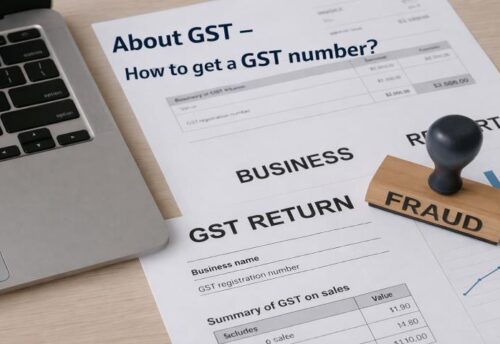
- 26/06/2025
- MyFinanceGyan
- 1199 Views
- 1 Likes
- GST, Tax
GST Return Filing Deadline Alert: 3-Year Limit Now Enforced from July 2025
India’s GST regime is changing, and the impact is irreversible this time. Starting 31st July 2025, the GST portal will permanently block the filing of any return older than three years from its original due date. If you’re a startup, small business, or trader with pending returns before July 2022, now is your final chance. This rule is not a warning — it’s a hard stop. GST Return Filing Deadline Alert: My Finance Gyan brings you this crucial update to protect your business from penalties, losses, and future roadblocks.
Why Is the 3-Year Rule Introduced?
The GST system is based on self-declared compliance. But the government has been facing issues with:
- Piling up of backdated, unfiled returns
- Mismatch in Input Tax Credit (ITC) between buyers and sellers
- Lack of accountability among non-compliant businesses
To tackle this, the government added Sections 37, 39, 44, and 52 to the Finance Act of 2023, limiting the GST return filing window to 3 years only.
The Rule in Brief about GST Return Filing Deadline:
- Introduced via Notification No. 28/2023 – Central Tax
- Effective from 31st July 2025
- Applies to all return types, including GSTR-1, GSTR-3B, GSTR-9, and GSTR-10
What This Means for Taxpayers about GST Return Filing Deadline?
- Returns older than 3 years cannot be filed: The GST portal will auto-block the form submission.
- Missed ITC? It’s gone: You won’t be able to claim any Input Tax Credit on those old invoices.
- Higher chances of legal scrutiny: Old dues increase your risk of receiving notices from GST officers.
- Your GSTIN is at risk: Non-compliance for multiple months may trigger suo motu cancellation of your GST registration.
Real Example: What You Might Lose:
Let’s say your business skipped the GSTR-3B filing for May 2021.
- The due date was 20th June 2021
- 3-year deadline = 20th June 2024
- You missed filing and crossed the date
- Result: That return is gone for good. So is your ITC for that period?
Even if you want to pay, the portal won’t accept the return unless you get special permission — which is rare.
Who Will Be Most Affected?
- Startups & Bootstrapped Founders: Often skip early GST returns due to lack of staff or funds.
- MSMEs & Freelancers: May overlook GST rules when there is no business activity.
- Businesses with Deregistered GSTINs: Usually, forget to file GSTR-10 (Final Return) after closure.
- Importers/Exporters: Pending returns may create problems in claiming refunds or applying for LUTs.
This rule is significant for young startups that delayed filings during setup years. Ignoring old returns can now block your growth and funding opportunities.
What If I Need to File After 3 Years?
There is a provision under GST law for filing delayed returns — but it’s not easy.
Conditions:
- Apply with a valid reason
- Wait for approval by the jurisdictional officer
- No guarantee of acceptance
- Approval may take weeks or even months
It’s safer and smarter to clear returns before 31st July 2025 and avoid the bureaucratic maze.
Step-by-Step: How to Check & Clear Your Pending Returns:
Step 1: Login and Review Dashboard:
- Go to gst.gov.in
- Click Returns Dashboard
- Select each financial year
- Not all months are marked as “Not Filed”
Step 2: Reconcile Sales & Purchases:
- Match invoices in your books with portal data
- Use GSTR-2A/2B to verify ITC eligibility
Step 3: Pay Dues and File Returns:
- Calculate tax, interest, and late fees
- Use challan (PMT-06) to make payment
- File returns one by one in proper sequence
Step 4: File Nil Returns If Needed:
- Even if there was no sale, a return is mandatory
- Avoid gaps in compliance history
Penalties You'll Face if You Delay:
Late Fees:
- ₹50 per day for GSTR-1, GSTR-3B
- ₹20 per day for Nil returns
Subject to a maximum cap — but still painful if stacked over months
Interest:
- 18% per annum on unpaid tax
- Calculated from the due date to the actual date of payment
These charges apply up to 3 years only — after that, you lose the right to file.
Tips to Stay GST-Compliant Going Forward:
Here’s how smart businesses keep GST under control:
- Set monthly calendar reminders
- Use GST-enabled software like Zoho or Tally
- Reconcile GSTR-2A/2B monthly
- Don’t wait till the last day to file
- Maintain all invoices for 6 years
- Consult a GST expert if unsure
My Finance Gyan recommends creating a compliance checklist to review every quarter, especially if you’re planning to raise funds, apply for tenders, or register for export.
Need Professional Help?
If you need GST legal support, response to notices, or help with backdated return filing, reach out to Startup Portal. They offer complete GST solutions for startups and early-stage businesses, including advisory, legal filing, and portal help.
Conclusion: GST Return Filing Deadline:
The new 3-year GST Return Filing Deadline limit is a game-changer. It’s not just a rule — it’s a deadline with consequences. After 31st July 2025, returns older than 3 years will be permanently blocked by the GST system. You won’t be able to file them, recover ITC, or clean up your history. Now is the time to check your pending filings and close them without delay. Don’t wait for a notice. Don’t lose your input credit. Don’t risk cancellation. If you’re facing any confusion, notices, or legal issues while clearing old GST returns, you can choose Startup Portal — a trusted legal and compliance partner for startups and small businesses. Act today — and keep following My Finance Gyan for the latest GST updates, compliance advice, and business finance guidance that helps you grow with confidence.



